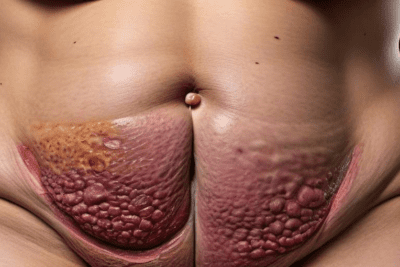
The role of vitamin D in blood sugar regulation

- The role of vitamin D in blood sugar regulation
- A Deep Dive into Vitamin D and Its Pivotal Connection with Blood Sugar Levels
- The Multifaceted Role of Vitamin D in the Human Body
- Blood Sugar Regulation: The Cornerstone of Health
- Vitamin D: The Unsung Hero in Insulin Production and Sensitivity
- Decoding the Impact of Vitamin D Deficiency on Blood Sugar
- Addressing Vitamin D Deficiency: Steps to Ensure Optimal Blood Sugar Regulation
- The Way Forward
The role of vitamin D in blood sugar regulation
A Deep Dive into Vitamin D and Its Pivotal Connection with Blood Sugar Levels
Vitamin D, often referred to as the 'Sunshine Vitamin,' has been making waves in the medical community for its myriad of health benefits. Among these benefits, one crucial aspect that stands out is its role in blood sugar regulation. This intricate relationship between vitamin D and blood sugar management has paved the way for groundbreaking research in diabetes management and preventive healthcare.
The Multifaceted Role of Vitamin D in the Human Body
It's no secret that vitamin D is integral for maintaining bone health. However, its functionality extends far beyond just that. Vitamin D plays a significant role in supporting our immune system, facilitating normal cellular growth, and more recently, in the efficient management of blood sugar levels.
Blood Sugar Regulation: The Cornerstone of Health
Regulating blood sugar isn't merely about preventing diabetes. It's about sustaining energy levels, supporting cellular functions, and maintaining overall bodily homeostasis. The hormone responsible for this crucial task is insulin, produced by the pancreas, which facilitates the uptake of glucose by cells. Here's where vitamin D enters the scene.
Vitamin D: The Unsung Hero in Insulin Production and Sensitivity
Studies have shown that vitamin D can play a dual role in supporting the insulin process. First, it aids the cells in the pancreas, ensuring they produce insulin efficiently. Second, vitamin D enhances insulin sensitivity in the body's tissues and cells. This ensures that glucose is taken up more readily from the bloodstream, preventing a state of hyperglycemia, which, when chronic, leads to diabetes.
Decoding the Impact of Vitamin D Deficiency on Blood Sugar
A deficiency in vitamin D can create a cascade of health problems, notably in the realm of blood sugar regulation. With inadequate vitamin D levels, the efficiency of insulin production and its subsequent cellular uptake can be severely hampered. This could lead to elevated blood sugar levels, increasing the risk of diabetes, particularly type 2 diabetes. Furthermore, chronic high blood sugar can result in complications such as neuropathy, retinopathy, and cardiovascular diseases.
Addressing Vitamin D Deficiency: Steps to Ensure Optimal Blood Sugar Regulation
Ensuring optimal vitamin D levels isn't merely about soaking up the sun. While natural sunlight does play a pivotal role in vitamin D synthesis in our skin, dietary measures are just as critical.
- Dietary Sources: Fish like salmon, mackerel, and sardines are rich in vitamin D. Dairy products, fortified cereals, and certain mushrooms can also contribute to your daily vitamin D intake.
- Supplements: Given the lifestyle and geographical constraints, not everyone can derive sufficient vitamin D from natural sources. In such cases, supplements, when taken under medical guidance, can bridge the gap.
The Way Forward
It's evident that the 'Sunshine Vitamin' does more than just light up our skeletal health. Its profound influence on blood sugar regulation is a testament to the intricate symphony of nutrients and hormones within our body. As we continue to understand and explore this relationship, one thing is clear: ensuring optimal vitamin D levels is not just a choice, but a necessity for holistic health.
In the journey of health and wellness, understanding the role of vitamin D in blood sugar regulation is merely scratching the surface. As we delve deeper, the interconnectedness of various nutrients and their collective impact on our health unfolds, reiterating the importance of a balanced lifestyle.
Our best recommendation in the end is that you get the best advice from a group of professionals who have been willing to revolutionize your diabetes situation and give you the opportunity to radically improve your health.
Visit at this time the link that keeps clicking on it
- 10+ Miracle Foods that Naturally Lower Blood Sugar
- Foods that Lower Blood Sugar Levels Naturally
- How to lower blood sugar naturally: Effective remedies from the US
- A Comprehensive Guide to Understanding Blood Sugar Levels: Everything You Need to Know!
- Tips for Maintaining a Balanced Diet and Controlling Blood Sugar Levels: Easy Ways to Stay Healthy









